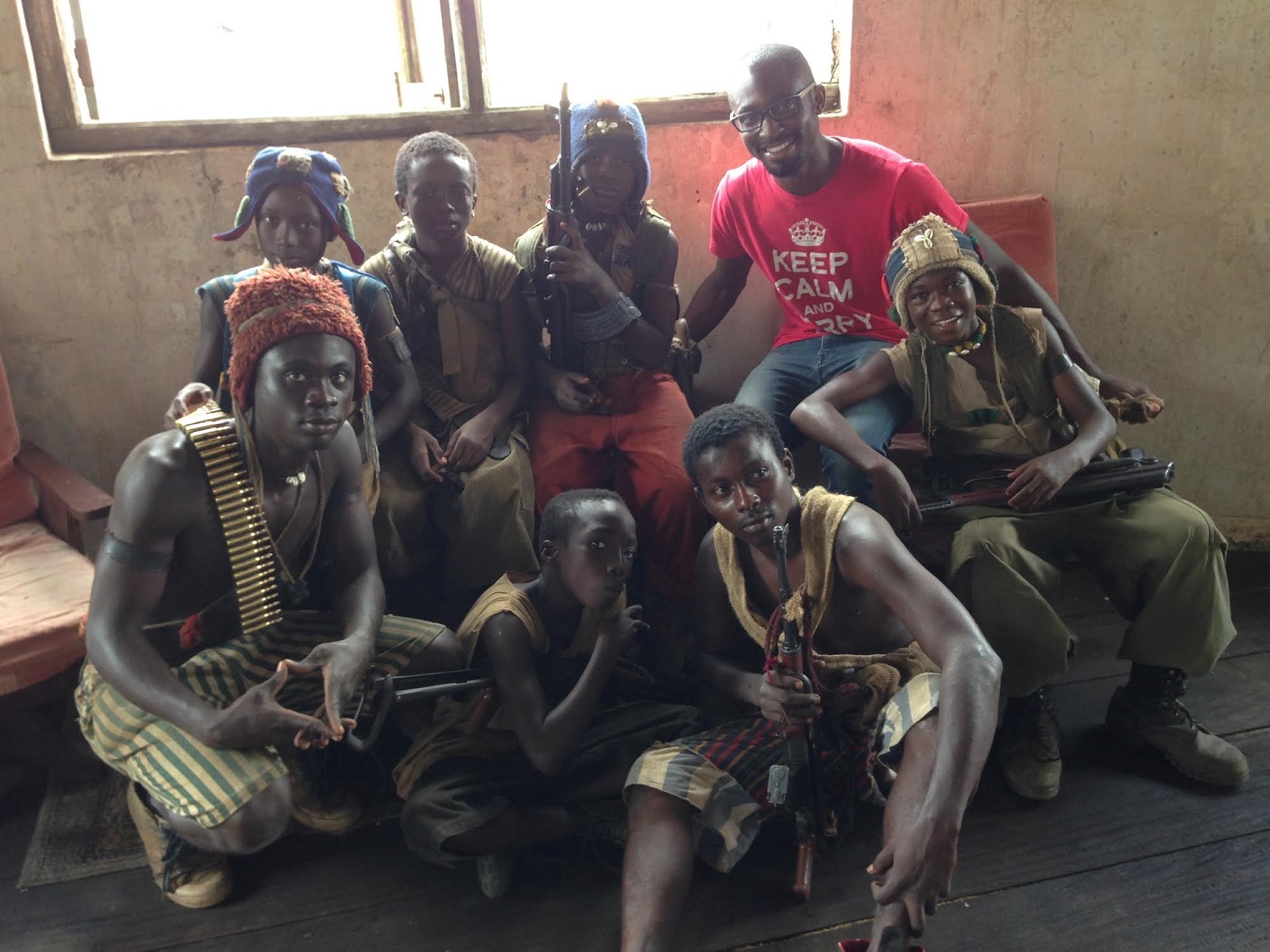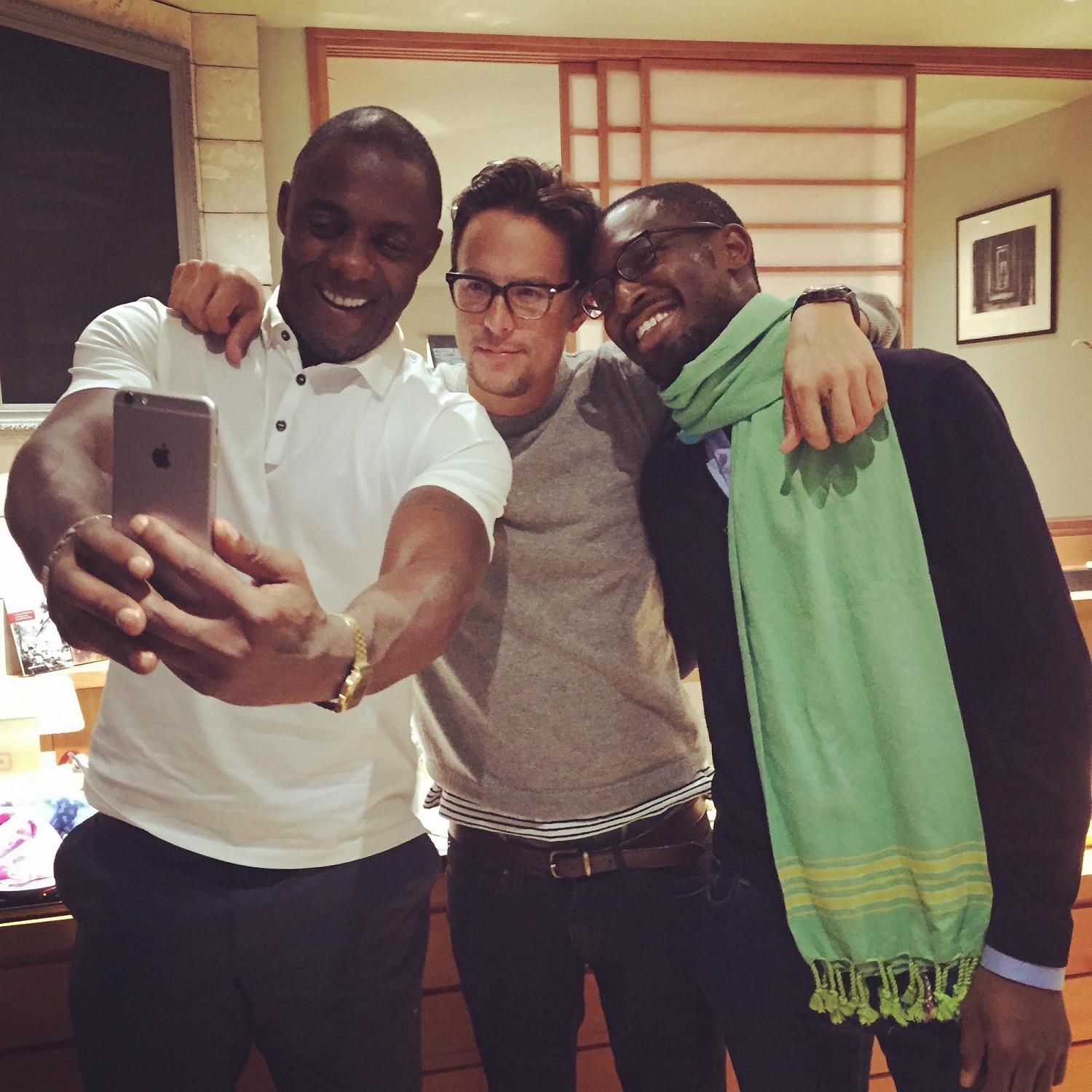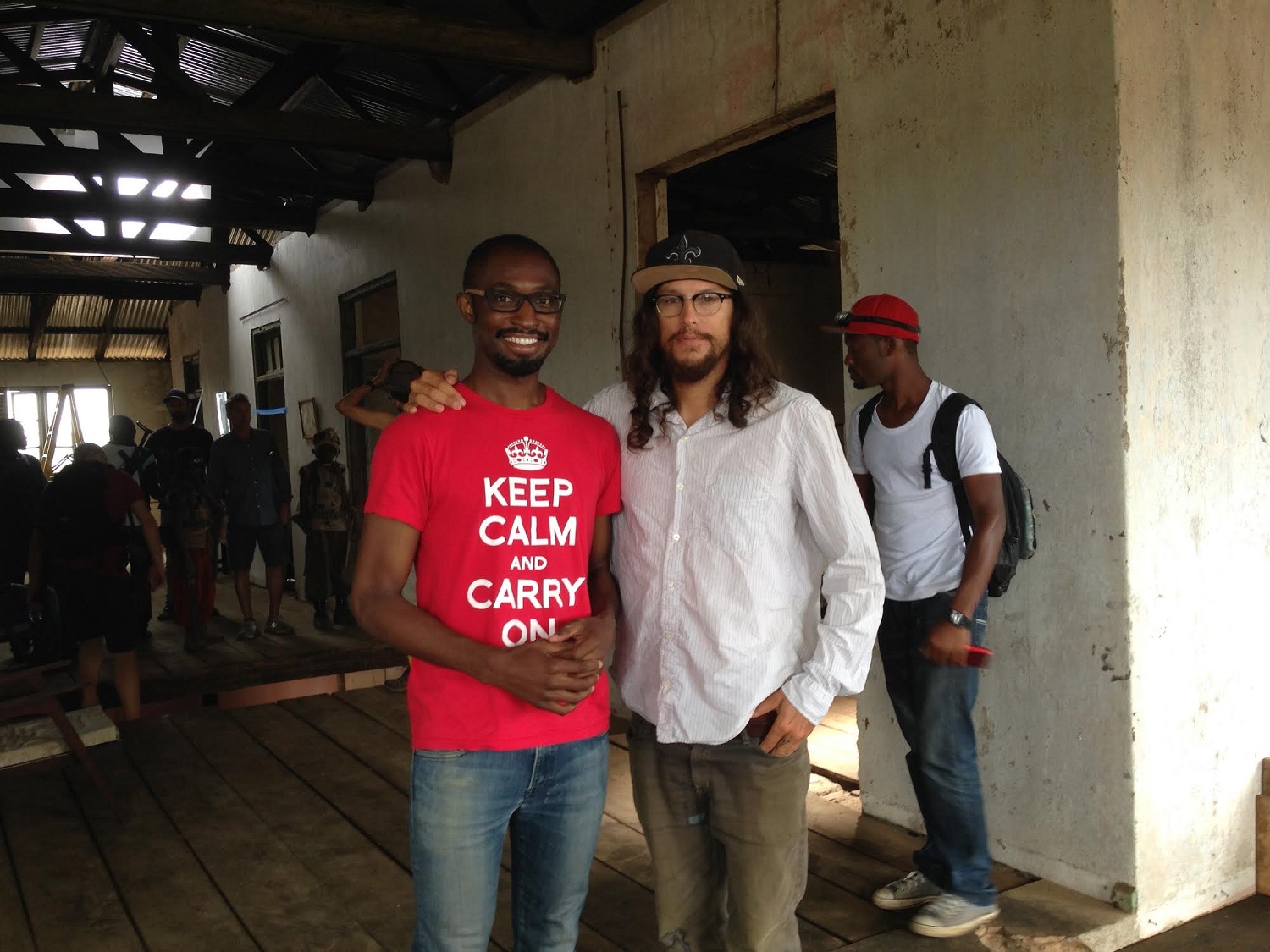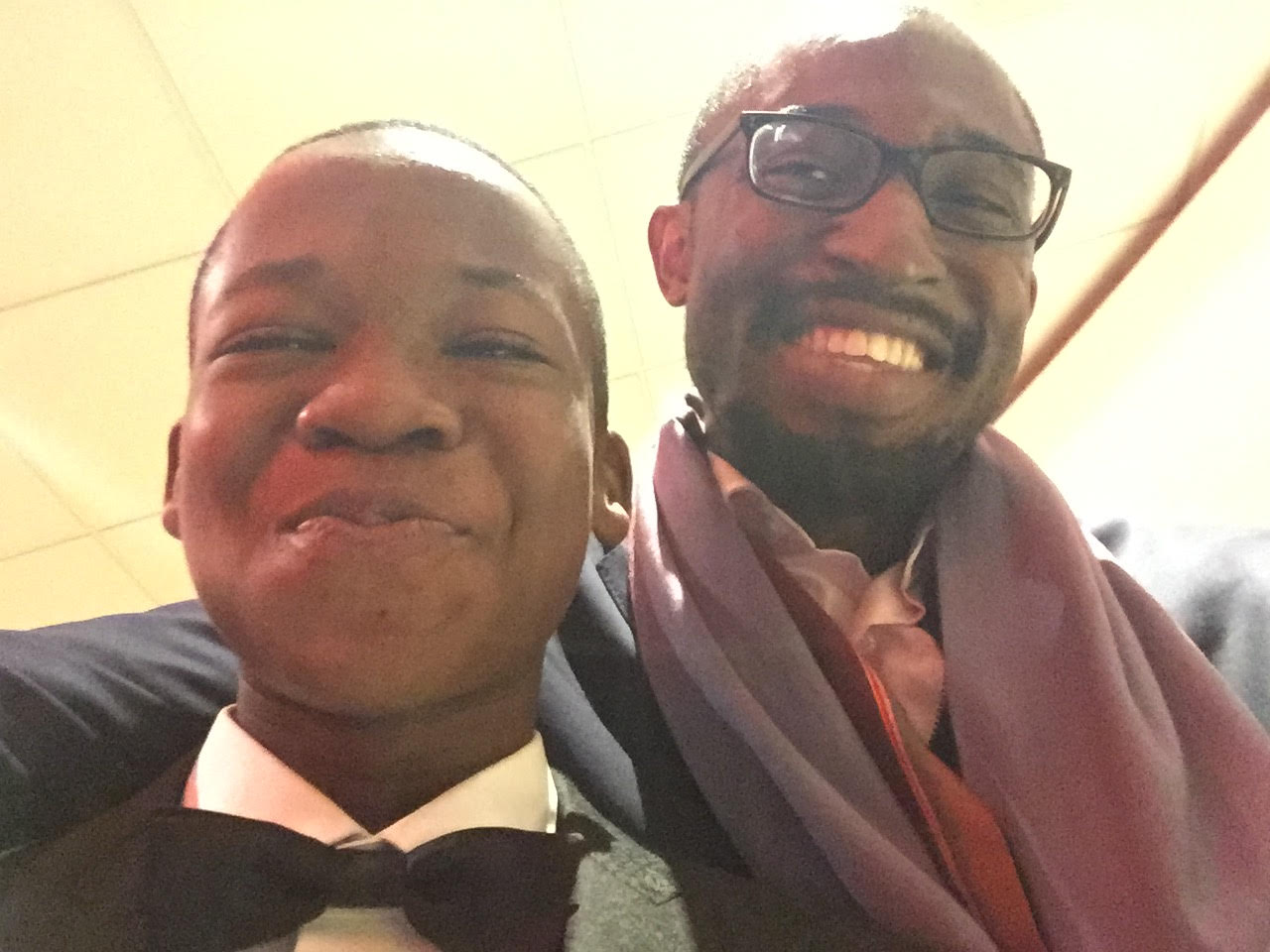Yesterday, I was chatting with a friend on social media, and he asked, “What’s new?” the typical conversation starter for Nigerians. I thought for a while, I didn’t want to say, “Nothing,” as I normally would. Then I remembered, – not that I forgot – and replied, “My boss’ movie, Beasts of No Nation will premier tomorrow – that’s NEW!”
The book, Beasts of No Nation, was the debut novel – undergraduate thesis work – of Uzodinma Iweala, Editor-in-Chief of Ventures Africa. It was written a little over 10 years ago, and published in 2005 to critical acclaims. The book tells the harrowing story of Agu, a young boy forced to become a child soldier under the harsh reality and brutality of war.
The feature film adaptation of the book, has been screened at major international movie festivals to rave reviews from top movie critics, with predicted Oscar wins. “Your job is just to watch it, as hard and necessary as that may be,” said top movie critic, Ty Burr, of Boston Globe.
In commemoration of the movie premier today in New York, I had an interview with Uzo, who is quite pleased about the reactions to the movie, and its first public screening today.
Did you ever think your novel which you wrote as a thesis while in school will become a movie someday?
I didn’t. Beast of No Nation, the novel was published almost exactly 10 years ago – 2005. It was developed from my senior thesis in Harvard University. I said before when I was writing it there were couple of things – the story, issue of child soldiers on the continent of Africa was what I really wanted to understand a lot better. And from what I was reading around, there were a lot of newspaper articles and human rights reports, but there weren’t so many books that really got into the emotionality of the subject matter. There are some really wonderful books like Allah N’est Pas Oblige written by Amadou Kouroma or Jonny Mad Dog. There’s a whole genre of literature that deals with some of the conflict on the continent and the involvement of children, but I wanted to see if I could write in that space and that was how Beast of No Nation came about. You know I joke sometimes that I was writing because I needed it to graduate from the university. I mean it was my senior thesis. But it was really much more than that for me; it was a chance to jump deeply into a subject and learn how to write about issues of importance – difficult issues.
But why the story of a child soldier, what actually piqued your interest to write this particular kind of story?
The initial story, I wrote when I was 14 or 15 after reading an article in the Washington post. I grew up in Washington DC. I read this article on child soldiers early on and I guess I was really confused that somebody my age was involved in something that was just so world’s away from what I knew and so devastating. I wanted to try and understand that a little bit more, so I got a pen and paper, which is how I process the world, and started writing the story. I think, why does anyone write any story, there are certain subjects that move you emotionally, that get at you intellectually, and you really want to understand. And this is one that did both to me, both an emotional and intellectual response, as much as anyone who is 14 years old can have. And I think later in life when I had the chance in the college to understand a little bit more about conflict on the continent of Africa and how we dealt with it as a society, and I got more exposure to different forms of literature around conflicts in the continent, that prompted me to try and make this into a much longer, more exploratory and more detailed work about child soldiers.

We had this conversation some time ago and you said you met a former child Ugandan soldier.
Yes. So when I was in college, we had a whole speaker series on conflicts in Africa, different aspects, and we invited different people to speak. My conversation with her was very brief; she gave her talk, and afterwards when we were waiting for her to get picked up by her driver, we just had a chat and I remembered her asking me what I was studying. And I said “Oh I am studying English, but my parents wants me to go to medical school.” And she said “Oh! That’s nice. I have no parents.” And in that moment something clicked in my heart and in my head, and I was just like “Whoa! I need to take a step back and reconsider so much of what I considered to be normal or difficult.” It was a small conversation, probably not more than two minutes, but you don’t know how certain things can have a profound impact on people. And that brought me back to the original story that I had written when I was 14, and then to write a much longer piece, about a 50 page piece that I submitted at a workshop that I was in, in the University at the time. When you study English at Harvard, you can apply to write a creative thesis. They select a few people each year. I then submitted this story and a proposal as my application for writing a creative thesis. I was then able to work in a year, with one of the greatest novelists alive Jamaica Kincaid who is from the Caribbean. To work with her for a year as my thesis adviser was one of the most profound intellectual academic experiences I’ve had in my life, and one that shaped how I look at myself as a writer, and how I approach my writing.
So, Beasts of No Nation was written in a year?
Technically? Yes. I had to write it between when I submitted the proposal for my thesis and when I had to hand it in, which was March of 2004. But obviously I had been thinking about it for quite some time, and it wasn’t just like, start, and get it together. The thought process had been going on for a while.
And you were 22 at the time right?
No, I was 21
What was the research process like? Did you ever travel to any of these countries to see other child soldiers?
The research process was pretty interesting. First, I started by trying to understand in detail, the Nigerian civil war of the late 60s and 70s, and the reason for that is that, that conflict spurred a lot of literature, but also child soldiers were a part of that. And even more than that, you can’t be Igbo from Nigeria and not hear stories about the civil war and how it affected families. My family is from the East. My father is from Abia state, my mum is from Delta state – she’s Delta-Igbo. Just hearing the stories where they talked about their experiences during the Nigerian civil war, hearing from my uncles, aunts, grandparents, great aunts and uncles, I wanted to start there because that was an intimate exposure to conflict and also an important source of storytelling. You read about the problems in northern Nigeria; you read about people coming back to South Eastern in Nigeria after all that – it’s important. But then again, I was looking at the modern day conflicts. I didn’t go to Liberia or Sierra Leone, but there is no shortage of information, first-hand accounts about these conflicts and how important and impactful they were on the society. And then I think most people know that for a while, because Nigeria was extremely involved in stabilizing those countries when they were in the midst of their conflicts.
There were quite a few Liberian and Sierra Leonean refugees who made it to Nigeria, and it just so happened that there was some kind of construction at the place where my parents were living, and some of the folks doing that construction were Liberians, so I had the chance of speaking with them to hear their experiences. And that went along with academic book research on child soldiers through reading policy papers and first-hand accounts. I think I read every novel that had been written about child soldiers. And then I read historical pieces. You know we talk a lot about child soldier problems in Africa, but it’s not an African problem. It’s a global problem, and it’s also a historical issue. So even if there’s a particular modern context for it, you can read back to World War Two, the Civil War in the United States, you could read way further back than modern times, and you’ll find a lot of stuff about child soldiers and how it’s impacted the history of warfare and combat.
So it seems Nigeria was your case study, was it?
Not 100 percent. Nigeria was one of numerous countries that I looked at. I mean I read about conflicts. Obviously in Nigeria.
But you definitely came to Nigeria for your research?
Of course I came to Nigeria. I am from Nigeria. And I spent a summer there, the summer between the junior and senior year of college, and that’s where I started to develop a lot of research for writing the book. Landscape-wise – when I think about Beasts of No Nation, in terms of the politics and what not, it might have been set in an unnamed country – but there is a very specific place that I was drawing upon just in terms of geography when I was writing the book.

There have been speculations that the story is about Nigeria, could you please clear the air on that?
It’s not Nigeria. It’s an unnamed country. But landscape wise, definitely there are elements of Nigeria that are there. But it’s not Nigeria. Because what I was trying to write about was something that perhaps was a little bit abstracted from the specifics of any particular country’s politics.
What is the significance of your book?
The significance of the book? I think there are two levels to that question. One, it’s for the person who reads the book to decide what the impact is. I think as a writer, you spend all the time in seclusion putting your thoughts down on paper, trying to construct worlds, then examine issues, and create characters. But once you are done and ready to publish, it becomes an object or a story for someone else to interpret and interact with as they want to. You can have ideas of what you want to do. For me, one of the primary things was to be able to try and tell the story of this person’s – the main character’s Agu – emotional experience. Far be it from me to dictate how they [an audience] should think about the issue. I think there are policy pieces that you write when you want people to take a particular action, and I’ve written a few of those in my life. But the experience and intimacy involved in reading a novel is one that you have to necessarily let go of control, and allow the reader to have an interpretative power, because that’s why the strength of the fiction and the creative work lies.
Why did you pick the name ‘Agu’ for your main character? Is there an underlying meaning in relation to the story?
Yeah, Agu means tiger or lion in Igbo. And I just wanted a name that sort of captured the ferociousness that one needs to survive in certain contexts, and at the same time, shows the importance of the main character.
What do you think made your book so successful?
I don’t know if I am the right person to answer that question. For me, I just wanted to write a book about a particular experience and I wanted that book to appeal to a wide range of people. I think for any subject matter there is the issue of what is happening at the world around that time, and as a writer, you want to write a story that reaches as many people as you can, and I’m really happy that Beasts of no Nation was able to do that.
The movie has been screened in Italy, London, and Canada, in all the major film festivals, did you attend these events?
I attended a few, not all of them. The movie business and the roll out is very new to me and in terms of the industry and the way things are processed. It was an amazing experience being in Toronto, when I saw the movie for the first time with a large number of people …
… Exactly, I wanted to get this point. How did it feel?
There’s nothing like seeing these characters that you’ve thought up in your head, reinterpreted by someone else like Cary Fukunaga, who’s a super talented director, movie maker, and screen writer, played by extremely talented actors like Idris Elba and Abraham Attah, it’s almost something like an out of body experience. I was very moved; I think I shared the same experience with many people in the audience who were just silent for a while, because it’s a very intense film It’s a lot to take in. But I think for me, it’s a whole other level; which is “Wow! This film is a reality. It’s been 10 years and for me even longer than that because writing the book you’ve sat with these issues, sat with these characters, sat with these thoughts for quite some time.
Were you ever on set?
I was able to go on set and see them shoot for a little over a day, and it was a pretty crazy experience. Again you imagine, I wrote the book a while ago and you get on to set and first of all, it’s a huge team of people necessary to make a movie. Second, you know you have people holding real weapons acting all these parts, and you are like wow! This is very real. It feels very real in a way – obviously real as the thing. One has to say that but to be thrust into a physical world as films are, whereas when you’re dealing with a book you’re still very much in somebody’s head or the realm of the imagination – was an intense experience.
You also begin to see how different these creative processes are really are; writing a book, and making a movie. One is very much a team experience; making a movie requires multiple parties, doing multiple jobs. And you need to make sure that these all work in sync with each other otherwise you are not going to get the kind of film that you want. Writing a book can be a team process; you have people who read your work, offer some suggestions and critic, but it doesn’t actually depend on a hundred other people.

Was it exactly as you imagined when you were writing the book?
No. And I think that’s a good thing.
Why?
The book is one thing and the movie is a different thing. They are different forms of art different works of art. I don’t have grandkids so I don’t know but it’s like you’re a parent, and you have a child, if your child has a child, you’re intimately attached and recognise, but at the same time, it’s a completely different being from the one that you brought into the world. And I think it’s a similar thing with movies that are based off of books. There is a process of letting go, and letting somebody else interpret and adapt and add their own creative flair to what you made in the first place.
So what would you say is the most impressive thing about the movie? Most of the reviews are about the actors and Cary Fukunaga’s directorial skill, what’s your take on that?
I am going to probably give you an answer that is may be a little bit unsatisfying but for me, the fact that it exists at all is no small thing. Because it’s your traditional kind of movie you would expect from folks out in Hollywood. It’s about an issue that is not necessarily super, for want of a better word sexy, and it’s also about a place that I think is alien to many people in the western movie viewing world. I think it’s for people to sit down, think, and say, “Okay, let’s make a movie about this in a way that is cognisant of where the film itself sits, and when I say that I mean how problematic it is to make a film about this subject matter for certain kinds of people to make this kind of film I think is an amazing experience and an amazing thing.
Aside from that, from the directing to the acting, I think Abraham Attah, the young boy who plays Agu I think had never acted a day in his life until he took up this role and that’s amazing. To think that you can bring up somebody from not having acted and just unleash their own skill and talent, and get them to play such a complex and intense character, and to play it with style and skill. I think that is really important and amazing.

So far, the reception has been great in the West. How well do you think it will do in Africa?
I don’t know. I think different viewing audiences will have different reactions to the film. What one can say is, it is a film that is carefully crafted and that’s very intense, and I think that’s respectful on the subject matter. I think people recognize that, that’s why it gotten such a positive reaction. The western viewing audience come at it with a different eye from say the audience in Africa, whether it’s in Nigeria, Ghana, or any one of these other countries. I think the, for want of a better term, African response to the film will be, hopefully as enthusiastic and as intense and interested as the response in the West.
So will there be a premier in Nigeria?
Yes, sure. The idea is to make sure that it is premièred in Nigeria and that its available to people on the continent.
Great! We can’t wait
I really can’t wait either because I really do think it’s an important film. Because I think it should be seen on the continent and it is another way of looking at some other complex issues that we face in societies across Africa.
So the movie is tipped to win an Oscar, I guess, you have heard that?
I have heard that. Again I’m not a Hollywood person, and I’m not a movie person, so I don’t know how any of this works. What I will say is if it does win awards, it’s because it really impacts and affects people. I want the film to do well; I want people to be able to interact with the film and watch it and see it and experience it, and that’s an important thing, because why make it otherwise. You put something like this out in the world. You want people to respond, and if their response is awards, then amazing. But even if it doesn’t get awards, I think having this story out, and having people pay attention to this story in the way that they have is a really important thing.
For more insight, listen to the podcast below








